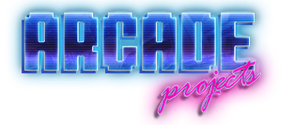NFGx
Grand Master
I have an original R-Type LEO board that I recently plugged in, and found that it has a sound problem. First, a description of the problem, then a list of the things I've tried. I'd appreciate any clues or suggestions.
The Problem
Initially, the sound of launching the bits, running out of bit energy, and re-homing the bits was completely missing, and the blue laser had some speech sample instead of the pzeer pzeer laser sounds. After I removed and re-socketed every EPROM, this changed.
Next, 'three two one let's go' became 'three two oh'. The blue laser sound was fixed, and the bit send/retrieve was weird but it worked, more or less. The music tended to be a bit odd sounding.
After poking and flexing the board, I was occasionally able to make it change a little bit (three two one let's-) but for the most part the changes are stable. After a few dozen reboots and attempts to find the problem, it's stopped changing and it's basically stuck on 'weird'.
What I tried
tl;dr - Most of the sounds play, but some are wrong. They changed once or twice after physically abusing the board while troubleshooting. It's otherwise stable.
Any ideas?
The Problem
Initially, the sound of launching the bits, running out of bit energy, and re-homing the bits was completely missing, and the blue laser had some speech sample instead of the pzeer pzeer laser sounds. After I removed and re-socketed every EPROM, this changed.
Next, 'three two one let's go' became 'three two oh'. The blue laser sound was fixed, and the bit send/retrieve was weird but it worked, more or less. The music tended to be a bit odd sounding.
After poking and flexing the board, I was occasionally able to make it change a little bit (three two one let's-) but for the most part the changes are stable. After a few dozen reboots and attempts to find the problem, it's stopped changing and it's basically stuck on 'weird'.
What I tried
- I pulled every EPROM and verified the contents on an EPROM reader.
- I pushed and pulled on the board everywhere I could
- I pushed on the pins of what I assume are the music chips (the big Yamaha and the 80-pin next to it)
- I brushed and scrubbed every socketed chip, pins and sockets
- I brushed the big PCB interconnects, moved them around, half-seated them, in an attempt to make them connect slightly differently
- I adjusted the voltage, from ~4.96 - 5.1V and back again.
- I carefully examined the board at the base of every component on the ROM board and the sound section of the CPU board.
- I doubt it's relevant but I also re-capped the board a couple of years ago.
tl;dr - Most of the sounds play, but some are wrong. They changed once or twice after physically abusing the board while troubleshooting. It's otherwise stable.
Any ideas?


